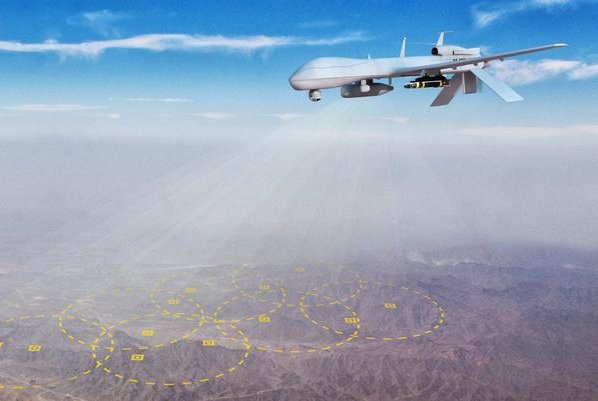BAE nets $4.7M by DARPA to integrate machine learning into RF signals detection
July 8, 2019
By Allen Cone

BAE System was awarded by the Defense Advanced Research Projects Agency to integrate machine learning of radio frequency signals for intelligence gathering. Photo courtesy of BAE Systems
July 8 (UPI) -- The Defense Advanced Research Projects Agency has awarded BAE Systems a contract worth up to $4.7 million to integrate machine learning into intelligence gathering involving radio frequency signals.
The technology will be used in platforms to decipher the signals, BAE said in a news release Monday.
Signals intelligence, or SIGINT, provides to the military advanced signal location and exploitation capabilities "to counter the threats of today and tomorrow," according to BAE.
The total contract is dependent on successful completion of milestones and includes hardware delivery, as well as integration and demonstration support.
The setup, which is called Controllable Hardware Integration for Machine-learning Enabled Real-time Adaptivity, or CHIMERA, provides a reconfigurable hardware platform for machine learning algorithm developers to make sense of radio frequency signals. BAE says the system is necessary "in increasingly crowded electromagnetic spectrum environments."
The contract is the second BAE has received under the Radio Frequency Machine Learning systems program. The first was a contract to develop data-driven machine learning algorithms.
"CHIMERA brings the flexibility of a software solution to hardware," said Dave Logan, vice president and general manager of Command, Control, Communications, Computers, Intelligence, Surveillance, and Reconnaissance -- C4ISR -- Systems at BAE Systems. "Machine-learning is on the verge of revolutionizing signals intelligence technology, just as it has in other industries."
The new system is capable of adapting to RF configurations in real time, offering better, easier control and improved performance that was not previously available. The system's open architecture interfaces also allow for third-party algorithm development, which BAE said will make it easier to upgrade and less likely to become obsolete.
And communications, radar and electronic warfare also can benefit from the new hardware platform, BAE said.

 www.upi.com
www.upi.com
July 8, 2019
By Allen Cone
BAE System was awarded by the Defense Advanced Research Projects Agency to integrate machine learning of radio frequency signals for intelligence gathering. Photo courtesy of BAE Systems
July 8 (UPI) -- The Defense Advanced Research Projects Agency has awarded BAE Systems a contract worth up to $4.7 million to integrate machine learning into intelligence gathering involving radio frequency signals.
The technology will be used in platforms to decipher the signals, BAE said in a news release Monday.
Signals intelligence, or SIGINT, provides to the military advanced signal location and exploitation capabilities "to counter the threats of today and tomorrow," according to BAE.
The total contract is dependent on successful completion of milestones and includes hardware delivery, as well as integration and demonstration support.
The setup, which is called Controllable Hardware Integration for Machine-learning Enabled Real-time Adaptivity, or CHIMERA, provides a reconfigurable hardware platform for machine learning algorithm developers to make sense of radio frequency signals. BAE says the system is necessary "in increasingly crowded electromagnetic spectrum environments."
The contract is the second BAE has received under the Radio Frequency Machine Learning systems program. The first was a contract to develop data-driven machine learning algorithms.
"CHIMERA brings the flexibility of a software solution to hardware," said Dave Logan, vice president and general manager of Command, Control, Communications, Computers, Intelligence, Surveillance, and Reconnaissance -- C4ISR -- Systems at BAE Systems. "Machine-learning is on the verge of revolutionizing signals intelligence technology, just as it has in other industries."
The new system is capable of adapting to RF configurations in real time, offering better, easier control and improved performance that was not previously available. The system's open architecture interfaces also allow for third-party algorithm development, which BAE said will make it easier to upgrade and less likely to become obsolete.
And communications, radar and electronic warfare also can benefit from the new hardware platform, BAE said.

BAE nets $4.7M by DARPA to integrate machine learning into RF signals detection - UPI.com
The Defense Advanced Research Projects Agency has awarded BAE Systems a contract worth up to $4.7 million to integrate machine learning into intelligence gathering involving radio frequency signals.
